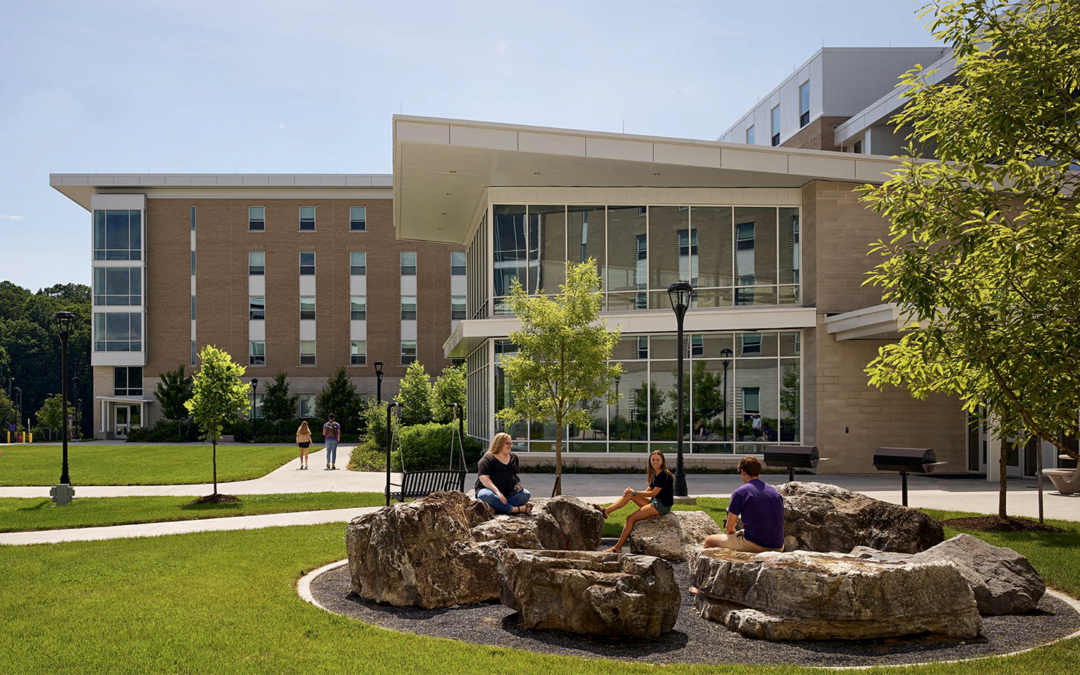
David Lehrer December 18, 2023
The 2023 Livable Buildings Award has been awarded to VMDO Architects for their Paul Jennings Residence Hall, a 500-bed student housing facility at James Madison University completed in 2019. This project is the first residential building to be recognized by this award program, held annually since 2007. The awards also recognized the Bay Area Offices for SERA Architects with an honorable mention. SERA designed a full-floor office in a historic building in downtown Oakland, Calif., with a focus on creating a flexible and healthy workspace.
More
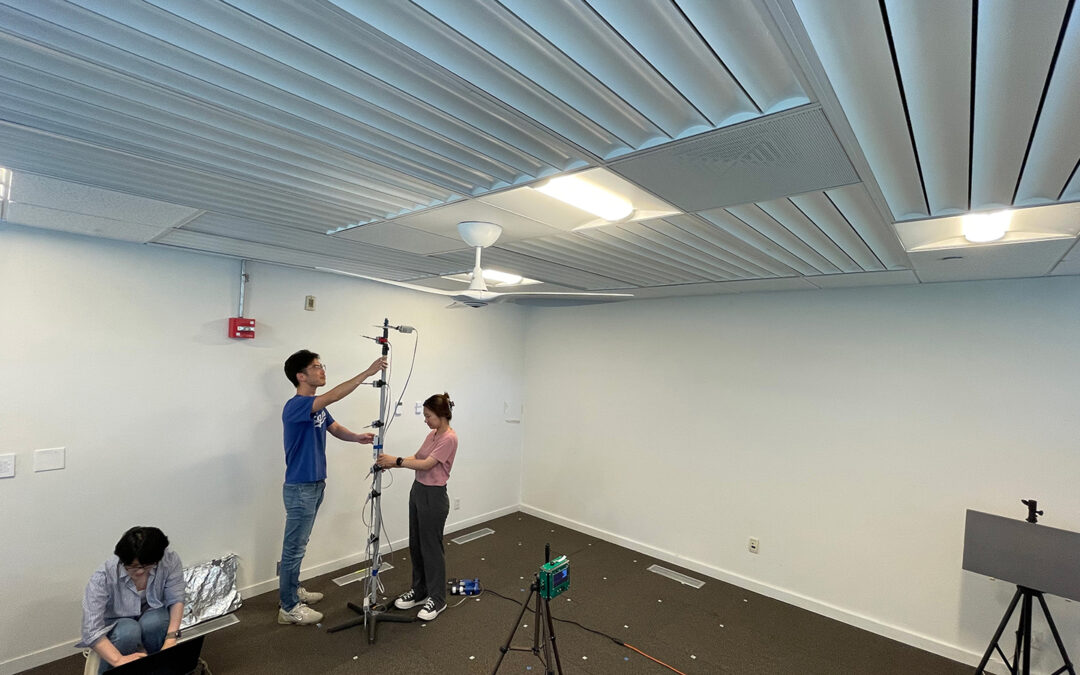
David Lehrer November 6, 2023
CBE’s controlled environment chamber has been used for research leading to hundreds of journal papers, including keystone work related to human response, indoor environments and mechanical systems in buildings and automobile cabins. A major renovation was completed this fall, updating obsolete systems and failing equipment that was hindering important research operations. This milestone was celebrated in a ribbon cutting ceremony and happy hour before CBE’s fall Industry Advisory Board meeting. In this post we acknowledge the recent contributors, and discuss past work and future directions.
More

David Lehrer July 25, 2023
In this Centerline we introduce two rising stars from CBE’s research team, Akihisa (Aki) Nomoto and Matt Roberts, the most recent postdoctoral scholars to join our center. Aki’s work reinforces CBE’s leadership on thermal comfort in complex environments based on human physiology. Matt brings to CBE extensive expertise in life-cycle assessment (LCA) methods, and will initially focus on the embodied carbon impacts of MEP systems.
More

David Lehrer February 15, 2022
The results of a new study challenge an industry standard which cited an optimal indoor temperature to improve work performance. The study followed the methods of previous research, but used additional data and rigorous statistical methods. The results found no evidence for a relationship between work performance and temperatures commonly found in offices, and none that should be adopted as an industry recommendation.
More

David Lehrer February 15, 2022
Two members of CBE’s research team have received recognition for their contributions from the American Society of Heating, Refrigerating and Air-Conditioning Engineers (ASHRAE): Edward Arens, CBE’s director and professor emeritus of architecture; and Thomas Parkinson, an assistant professional researcher. In addition, several active and past members of CBE’s industry consortium also received recognition.
More
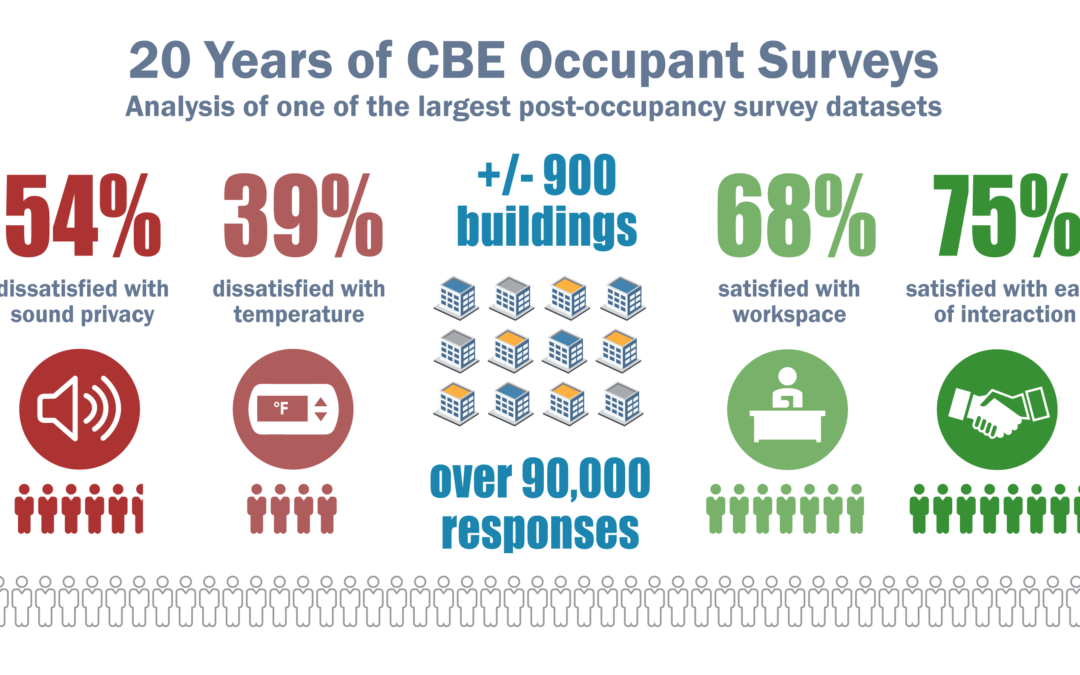
Lindsay T. Graham March 16, 2021
Occupant surveys provide valuable insights into how well a building is performing. Historically these surveys focus on comfort and satisfaction. However, as our attention shifts to occupant health and wellbeing, we wonder whether our tools are measuring all we need them to. In a recent paper, we look at the CBE Occupant Survey tool and its database to evaluate its measurement and benchmarking properties, while also identifying new enhancements intended to support the creation of spaces that truly benefit those who use them.
More
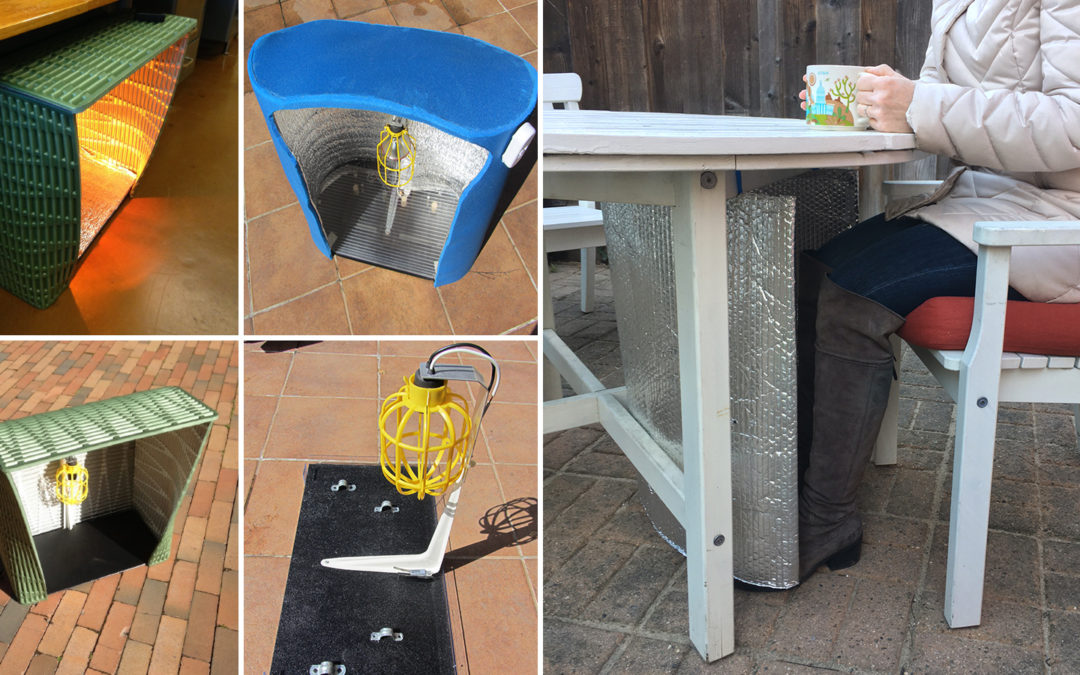
David Lehrer January 20, 2021
The Covid-19 pandemic has challenged the restaurant industry, forcing many beloved institutions to close, while many have pivoting to take-out service and outdoor dining only. While we rally to support our favorite eateries, colder climates present some serious challenges to patio dining. In this Centerline post we borrow ideas from CBE’s experience with prototyping and testing innovative and energy-efficient ways to help people comfortably dine al fresco as we get through a dark and cold pandemic winter.
More

Edward Arens August 20, 2020
Imagine an ice cream parlor that offers only one flavor of ice cream, one chosen by scientists based on what an ‘average’ person wants. While this idea seems absurd, a similar logic has been used in establishing standards for thermal comfort in buildings. A group of CBE staff, industry partners and others have developed a revision to thermal comfort standards that acknowledges the variability in human comfort preferences.
More

David Lehrer April 15, 2020
Millions of people are working at home to prevent the spread of Covid-19, creating stress and impacting our well-being and productivity. Science shows that time spent in nature may improve our health and emotions, however, when we are not able to be in nature physically, we may derive benefits simply by access to windows with views. A study recently published by CBE found that a view from a window has positive impacts on emotion, cognitive performance and thermal comfort.
More
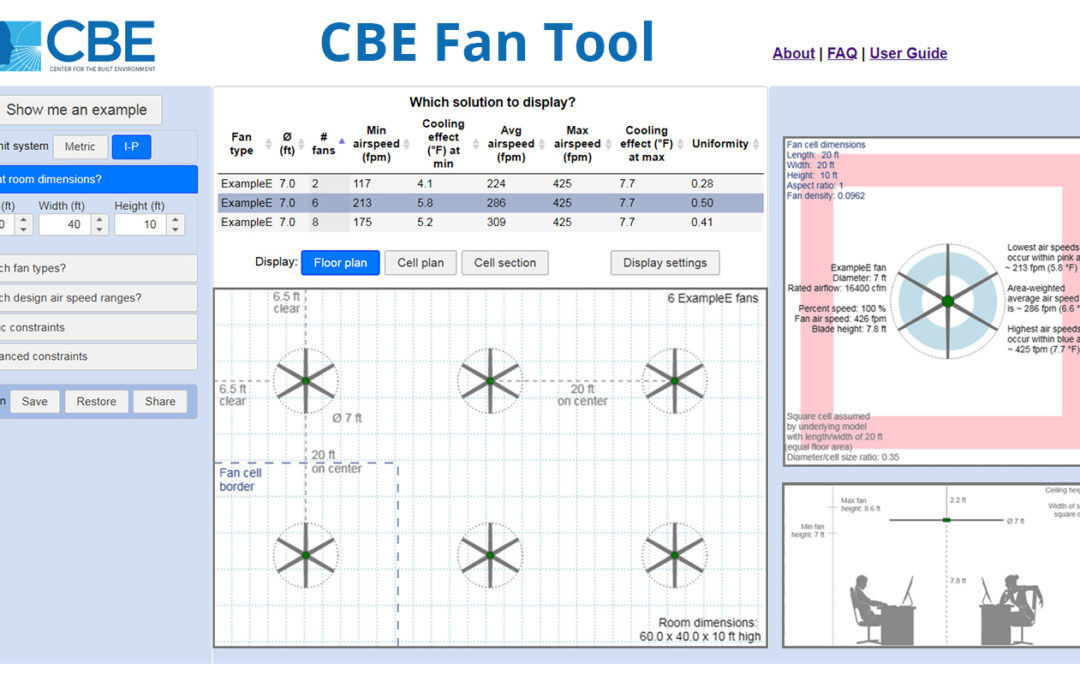
Centerline Team February 13, 2020
CBE recently launched an online tool for designing with ceiling fans, making it easier for designers to create highly energy efficient and comfortable spaces. The tool was created based on years of research that have demonstrated that ceiling fans can keep a person cool while using only a fraction of the energy required by air conditioning.
More










